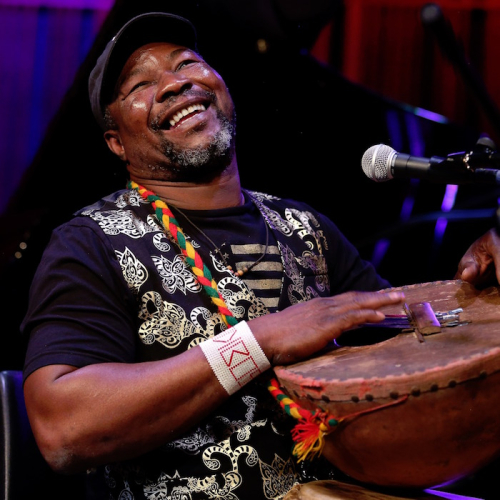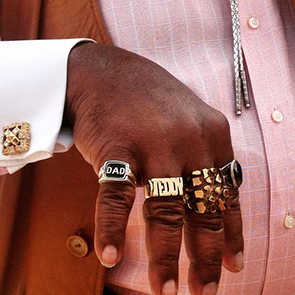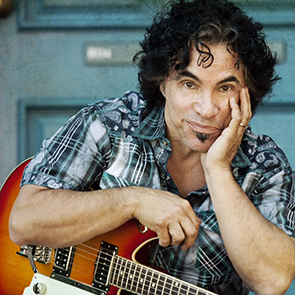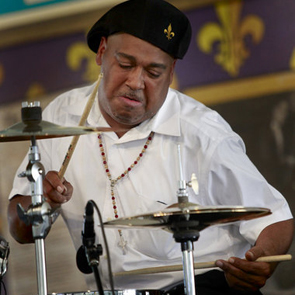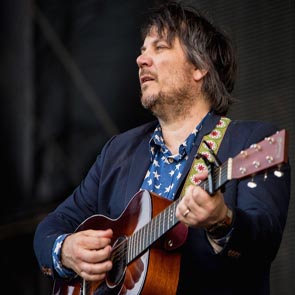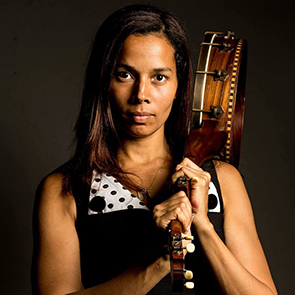RED STICKS AND BLUE NOTES: THE BATON ROUGE BLUES FESTIVAL
This week, American Routes revisits the best live performances from the 2016 Baton Rouge Blues Festival. We’ll feature swamp blues, Mississippi Delta blues, hill country blues, and the blues rocked out. Artists include Howlin’ Wolf’s pianoman Henry Gray, harp player Lazy Lester, Kenny Neal and family, Slim Harpo’s right-hand guitar man James “Chicken Scratch” Johnson, songmaker Luke Winslow King, New Orleans soul funkster Walter “Wolfman” Washington and R.L. Burnside’s grandson, Kent Burnside. Plus a visit to Teddy’s Juke Joint nearby on Highway 61 in Zachary, LA.
PHILLY SOUL FOLKS & LOUISIANA SWAMP POP: JOHN OATES & JOHNNIE ALLAN
While they don’t all have blue-eyes, the white soul and swamp pop guys and gals from Philadelphia and South Louisiana have created distinctive regional sounds of national significance. In Philadelphia, we sample soul roots of the famed band Hall & Oates; and learn from John Oates that — despite years of pop music, big hair and synthesizers— at heart he is also a folkie into country blues and flat-picked guitar a la Doc Watson and Mississippi John Hurt… which he plays live for us! The angelic-voiced Daryl Hall, on the other hand is more disciple of the Temptations who we’ll hear along with the Orlons, The O’Jays and Sister Rosetta Tharpe. In south Louisiana the simmering pot of music that draws on Cajun, R&B, soul and country ends up as a tasty dish called Swamp Pop. Johnnie Allan (Guillot) is a Cajun Swamp Pop chef extraordinaire with hits like “South to Louisiana” and a version of the “Promised Land” played on the French accordion. He’s surrounded by music from Earl King, Cookie & the Cupcakes, and Slim Harpo. Tasty indeed!
TIMEKEEPERS: THE ART OF DRUMMING WITH JM VAN EATON, ZIGABOO MODELISTE, TITO PUENTE, BEN RILEY AND SHANNON POWELL
This week on American Routes, we’re keeping the beat with drummers and rhythm makers across the genres: everyone from Sun Records’ Rockabilly drummer JM Van Eaton, to jazz percussionist Ben Riley, who had to keep up with the unconventional rhythms of Thelonious Monk. In between, we listen live in-studio to New Orleans’ King of Treme, Shannon Powell, whose music takes us from the church to the streets and beyond. The funky backbone of The Meters, Joseph, “Ziggy” Modeliste tells us what it really means to hit a groove, and we’ll play an encore presentation of our interview with New York City percussionist, Tito Puente, El Rey de los Timbales.
SMALL TOWN BLUES: JEFF TWEEDY AND JIMMY DUCK HOLMES
Wilco frontman, Jeff Tweedy tells of the impact on his songs of growing up in the blue collar town, Belleville, Illinois. Music became his creative outlet in high school and lead to founding the seminal Americana band, Uncle Tupelo. We hear from Jeff in his Chicago studio “The Loft” about the emergence of Wilco and the place that making music has in his life, including work with Woody Guthrie’s lyrics and producing records with Mavis Staples. In Bentonia, Mississippi, playing blues and running the Blue Front Cafe, has been a lifetime role for guitarist Jimmy “Duck” Holmes. Duck talks about juke joints and moonshine in the Jim Crow South til now- and how he got the name Duck. We’ll also hear music of jukes, honky-tonks and nightclubs from Hank Williams and George Jones to Bessie Smith and Mary Lou Williams.
THE CAROLINA CHOCOLATE DROPS AND THE BLACK EXPERIENCE IN COUNTRY MUSIC
This week, we talk to the founding members of the Grammy award-winning Carolina Chocolate Drops. Justin Robinson, Rhiannon Giddens and Dom Flemons started playing music together under the tutelage of legendary black old-time fiddler, Joe Thompson in his backyard shed. The Chocolate Drops came together to carry on the old time and country traditions from the Piedmont region in the Carolinas, but they wanted to do more than just play. They wanted to show their audiences that African American music finds its roots in genres beyond blues and jazz. Then we delve into the archives for our classic conversation with the late, great Ray Charles – and pianist Johnnie Johnson tells us about the surprising origins of Chuck Berry’s “Maybellene.”

